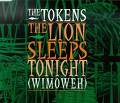
Jay Siegel recently went to his granddaughter's
kindergarten class for show and tell.
Abigail Hanania, 5, thought the kids in her class
would be interested to hear her grandfather sing.
Siegel, who performs with his doo-wop group, The
Tokens, Wednesday night in The Villages, is best known
for the all-time classic The Lion Sleeps Tonight.
"Everywhere I go, everybody knows that song," Siegel
said.
Even kindergarten kids.
Siegel showed up in Abigail's class, and, to his
surprise, her little buddies started singing along
with "The Lion Sleeps Tonight."
"I was kind of surprised," Siegel said. "I know the
song is popular, but I wasn't sure if 5-year-olds
would know the words but they did."
It was 1961, when the original "The Lion Sleeps
Tonight" hit No. 1 on the record charts. Siegel had
been part of The Tokens since the mid 1950s, when he
performed in the group then headed by fellow Brooklyn
high school student Neil Sedaka.
Sedaka left for a successful solo career but Siegel
stayed with The Tokens, first singing doo-wop harmony
on street corners. Eventually, the group signed a
record deal and had a hit, "Tonight I Fell In Love,"
in early 1961.
Siegel had an idea for another song. He had been a big
fan of the folk music group, The Weavers. Pete Seeger
of the Weavers sang a South African folk song called
"Wemoweh."
Siegel and The Tokens added a few changes, kept the
"wem-o-weh" chorus and called it "The Lion Sleeps
Tonight." Back in 1961, this was a totally new sound,
a strange combination of doo-wop, pop and folk music.
It was an immediate smash.
"No one could predict that this song would have such
an impact," Siegel said. "I had a record of the old
Pete Seeger song and wanted to do it a different way.
But I never thought that it would last so long and
touch so many people."
"The Lion Sleeps Tonight," never really went away. It
keeps appearing in commercials and television shows,
including the long-running comedy "Friends." But the
biggest jolt of new life for the song came in the mid
1990s, when Disney's animated feature "The Lion King"
was released.
Right smack in the middle of the film, and later the
ground-breaking stage musical, was the old hit, "The
Lion Sleeps Tonight." RCA decided to re-release the
single, and it became a Top 20 hit more than 30 years
after its original release.
"I never figured on anything like that ever happening
to me or the song. How could you?" Siegel said. "But
it's great, because it makes you feel a part of
something that's bigger than just a song. 'The Lion
Sleeps Tonight' has a place in American music
history."
The National Endowment for the Arts and the Recording
Industry Association of America agrees. They named
"The Lion Sleeps Tonight" as one of the 300 greatest
songs of the 20th century.
A few years ago, Siegel ran into Pete Seeger while
both were performing at a music festival in the
Midwest. "I went to see Pete after the show," Siegel
said. "I told him, 'If it wasn't for you, I wouldn't
be here today.' He was very gracious."
The Tokens never matched the success of "Lion,"
although they had some hit records, including
"Portrait of My Love," "She Lets Her Hair Down" and "I
Hear Trumpets Blow." Later, Siegel had a hand in
producing other artists such as Tony Orlando and Dawn,
as well as the Chiffons' hit single, "He's So Fine."
Siegel and members of the Tokens also sang back-up for
other artists, including Bob Dylan, Mac Davis and Del
Shannon.
These days, Siegel and the Tokens may be best
recognized for their appearances on the PBS doo-wop
specials.
"Radio today is so tight and so controlled by the big
corporations; PBS is the only place you can hear this
music," Siegel said. "I think it's sad because so many
people love this kind of music and the oldies. But the
big companies don't want to play it."
Siegel helps keeps the old music alive through a
strenuous touring schedule.
"I love it. People come up to me and say, 'Thank you
for helping us to feel young again.' We sing the songs
the way we sang them years ago. We know that's what
the people want."
Thanks to Warren Cosford for this item.
Michael